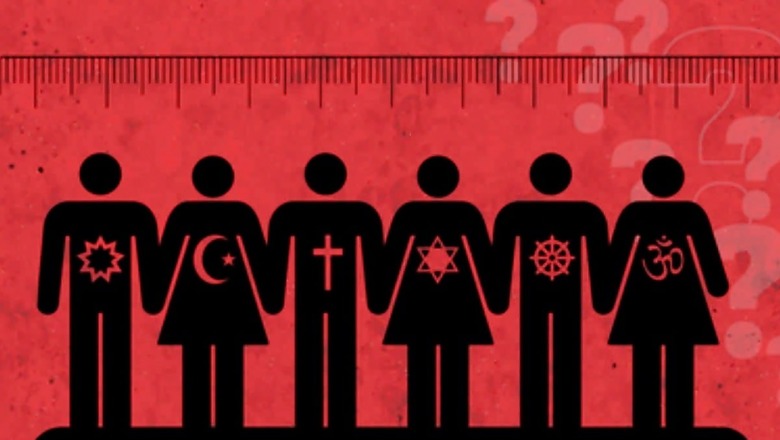
views
The Law Commission of India has received more than 70 lakh responses to its notice inviting suggestions from the public and recognised religious institutions pertaining to the Uniform Civil Code (UCC). The number is expected to reach about 1 crore till the deadline for submission of views ends on Friday. CNN-News18 has learnt exclusive details about the proposed UCC, including that it won’t touch the practices and rituals of tribal populations.
Tribal communities are already granted protection under the Constitution’s Article 371 and Schedule 5 and 6, and so they won’t be included in the Uniform Civil Code, said sources.
Codification of the practices of various tribes in the country is nearly impossible, they added.
Over 8 million responses received so far on #UCC; Tribals won't be included in the #UniformCivilCode due to special provisions: Law Commission sources News18's @anany_b gets you all the details @JamwalNews18 | #LawCommission #India pic.twitter.com/TvqfHxoeAq
— News18 (@CNNnews18) July 28, 2023
Live-in relationships are also unlikely to come under the UCC as, sources said, having a parallel institution to marriage would give rise to many legal complications.
The focus of the UCC drafters is on promoting gender equality and family harmony, they said.
The UCC drafters are deliberating strongly on linking marriage registrations with Aadhaar, they added.
“Unnecessary fear is being spread as UCC is an inclusive law,” said sources.
Significantly, they said that humongous support has been received for the Uniform Civil Code from Muslim women, a fact borne out by CNN-News18’s recent comprehensive survey.
Some of the responses to the survey indicated that many prominent Muslim women bodies seek:
- Polygamy to be made illegal under section 494 of the Indian Penal Code.
- Provisions for regularisation of ‘irregular marriages’ that have happened without witnesses, without a qazi, or if the mehr is not paid.
- Witnesses to a marriage must be adults with verifiable documents of age and residence.
- Halala, Misyar, and Muta marriages must be declared illegal.
- Without the express consent of the bride, the marriage cannot be considered to be solemnised.
- A marriage must be considered to be a contract between two adults and not a sacrament.
- All Muslim marriages must be registered.
- Nikahnama/Iqrarnama must be a mandatory document.
- Registration of qazis should be made mandatory. Only registered qazis should be able to solemnise a marriage.
- Women qazis must be given priority to register themselves.
- The procedure of the solemnisation of nikaah must be laid down clearly.
While Muslim women are among huge supporters of the UCC, men from the community have opposed it in large numbers.
Prominent Muslim bodies have suggested to the Law Commission that women from the community too should be granted adoption rights under the Juvenile Justice Act.
Sources also told CNN-News18 that some of the responses received by the Law Commission after inviting public comments contain unparliamentary language in a bid to oppose the exercise pertaining to the Uniform Civil Code.

















Comments
0 comment